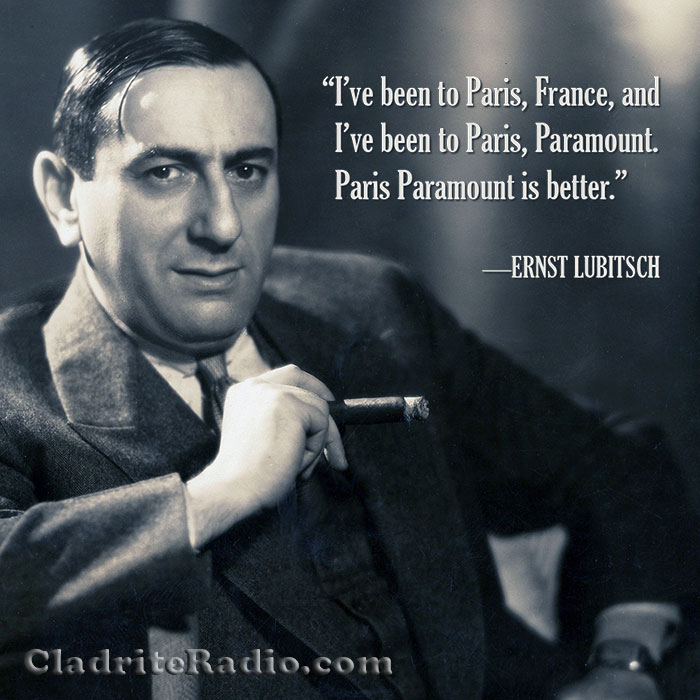The great—and we do mean great—Ernst Lubitsch was born 125 years ago today in Berlin, Germany. He would go on to direct some of the greatest comedies in cinema history. Here are 10 EL Did-You-Knows:
Lubitsch’s parents were Ashkenazi Jews; his father was a tailor who hoped that his son would follow in his footsteps, but Ernst was interested in the theatre.
Lubitsch began his career as an actor, making his film debut in 1913 in The Ideal Wife. He directed his first picture in 1914. He would go on to act in approximately thirty films before making the switch to directing fulltime in 1920.
In 1922, Lubitsch was hired as a director by Mary Pickford and came to Hollywood. He and Pickford didn’t get along while they made their first and only picture, Rosita, together, but he was quickly offered a six-picture deal by Warner Brothers that gave him his choice of cast and crew and final edit privileges.
Lubitsch’s reputation for creating sophisticated comedies began in the silent era, but it was with the rise of talking pictures that he really found his stride. Many of his early sound pictures—The Love Parade (1929), Monte Carlo (1930) and The Smiling Lieutenant (1931) among them—were musicals that certainly featured elements of the stylish comedic work he would come to be associated with, but it was with his 1932 masterpiece, Trouble in Paradise (1932), that he made his first big splash in the genre of romantic comedy. He would make no more dramas after Broken Lullaby (1932).
After several years with Paramount Pictures, Lubitsch was named the studio’s production manager, making him the first director to run a major studio.
In 1939, Lubitsch moved to MGM, where he directed Ninotchka. Though he was longtime friends with the picture’s star, Greta Garbo, Ninotchka was the first and last time the pair would work together.
Billy Wilder cited Lubitsch as his favorite director. He is said to have had a sign over the door in his office that read, “How Would Lubitsch Do It?”
The Lubitsch classic The Shop Around the Corner (1940) was remade twice: In 1949 as a musical (In the Good Old Summertime, starring Van Johnson and Judy Garland) and in 1988 as a romantic comedy (You’ve Got Mail, starring Tom Hanks and Meg Ryan). The 1963 Broadway musical She Loves Me was also based on the film’s source material, the play Parfumerie by Hungarian playwright Miklós László.
Lubitsch’s unique blend of wit and sophistication came to be known in Hollywood and around the world as “the Lubitsch Touch,” a label which critic Michael Wilmington ably described: “At once elegant and ribald, sophisticated and earthy, urbane and bemused, frivolous yet profound. [Lubitsch’s pictures] were directed by a man who was amused by sex rather than frightened of it—and who taught a whole culture to be amused by it as well.” We couldn’t agree more.
In 1946, Ernst Lubitsch received an honorary Academy Award for his distinguished contributions to the art of the motion picture. He died of a heart attack the next year.
Happy birthday, Ernst Lubitsch, wherever you may be!


